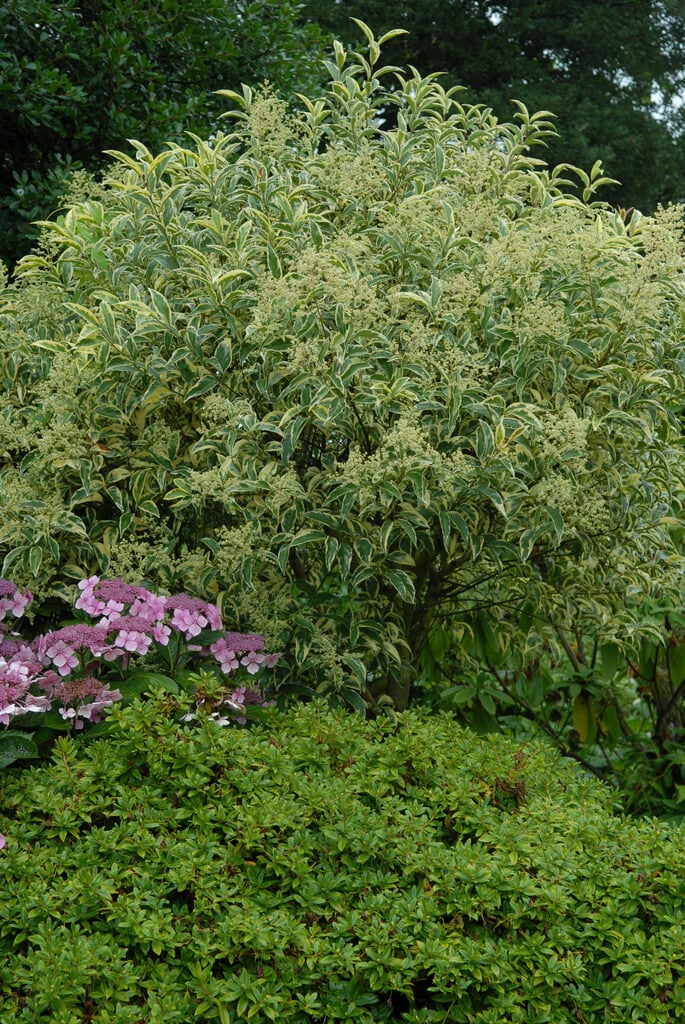Size
Ultimate height
8–12 metresTime to ultimate height
10–20 yearsUltimate spread
4–8 metresGrowing conditions
Moisture
Well–drainedpH
Acid, Alkaline, NeutralColour & scent
| Stem | Flower | Foliage | Fruit | |
| Spring | Grey Silver Green Cream | |||
|---|---|---|---|---|
| Summer | White | Grey Silver Green Cream | ||
| Autumn | White | Grey Silver Green Cream | ||
| Winter | Grey Silver Green Cream |
Position
- Full sun
- Partial shade
Aspect
East–facing or South–facing or West–facing
Exposure
Exposed or Sheltered Hardiness
H5Botanical details
- Family
- Oleaceae
- Native to GB / Ireland
- No
- Foliage
- Evergreen
- Habit
- Columnar upright
- Potentially harmful
- Harmful if eaten. Wear gloves and other protective equipment when handling
- Genus
Ligustrum can be decidous or evergreen shrubs or small trees, with simple, entire leaves and panicles of small, often unpleasantly scented white flowers in spring or summer, followed by black or deep purple berries
- Name status
Accepted
How to grow
Cultivation
Grow in well-drained soil in full sun pr partial shade but better leaf colour in a sunny position
Propagation
Propagate by semi-ripe cuttings in summer or hardwood cuttings in winter
Suggested planting locations and garden types
- Coastal
- Cottage and informal garden
- Low Maintenance
- Hedging and screens
Pruning
Pruning group 1; in summer; clip hedges twice in summer
Pests
May be susceptible to aphids, lilac leaf miner and privet thrips
Diseases
May be susceptible to honey fungus, a virus or fungal leaf spot
Get involved
The Royal Horticultural Society is the UK’s leading gardening charity. We aim to enrich everyone’s life through plants, and make the UK a greener and more beautiful place.
